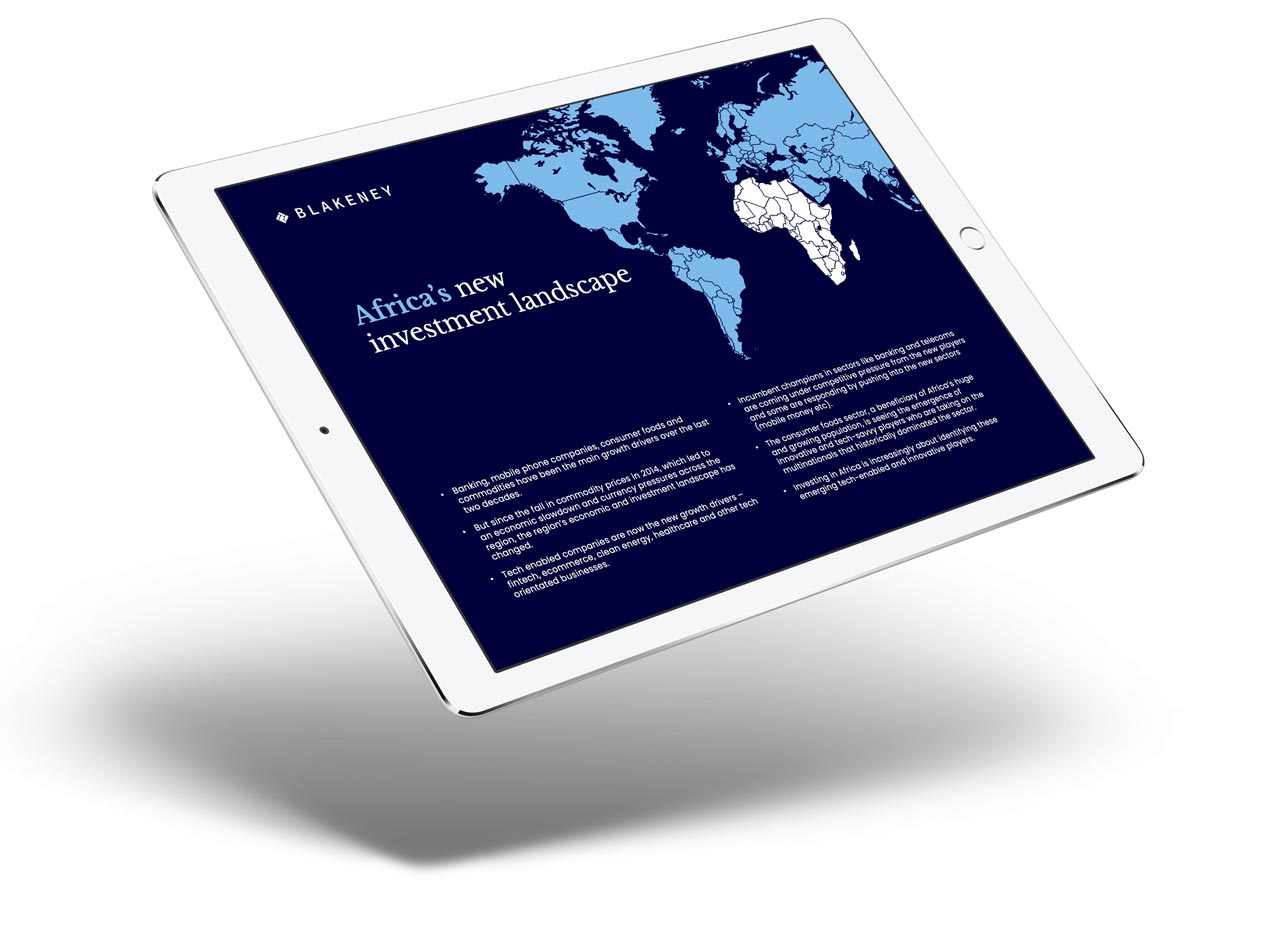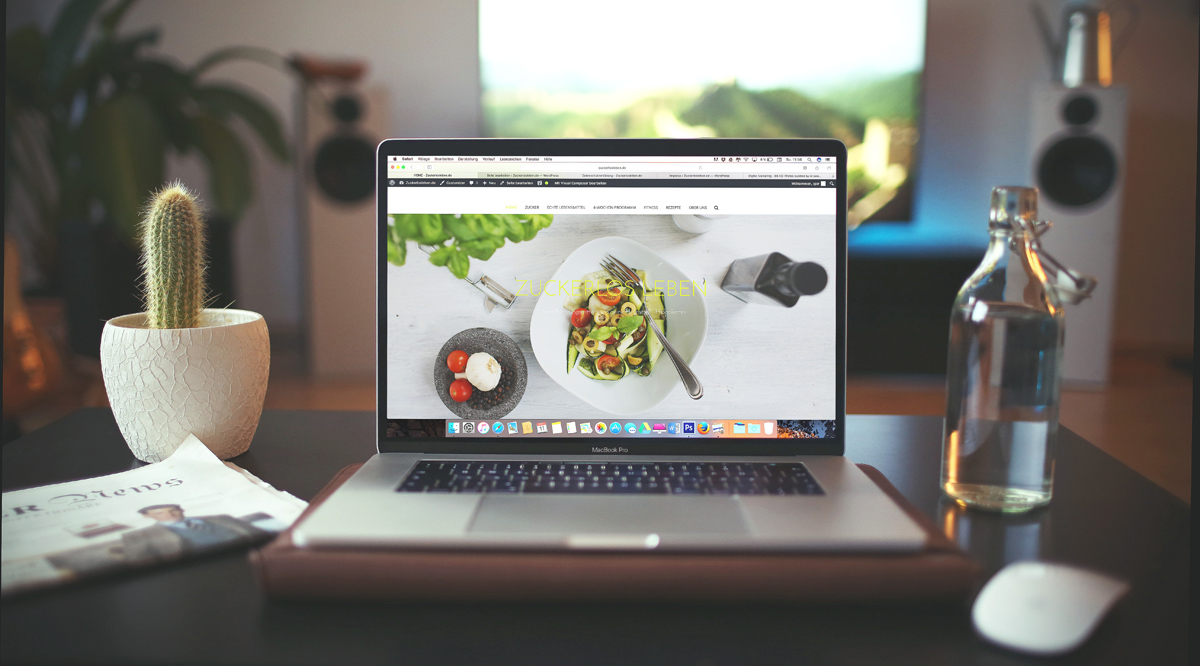When it comes to designing a website, there are endless possibilities and considerations to keep in mind. From choosing the right colour scheme to optimising the user experience, web designers have a lot to think about.
One important decision that can make a significant impact on the success of a website is the layout. While multi-page websites have been the norm for a long time, one-page website has become increasingly popular in recent years. Before deciding to make your site one page, it’s important to understand if this type of site will be good for your business, or if you will require a full multi-page site. In this blog post, we will go through the pros and cons of one-page web design, but first let’s define what a one-page website is.
Related Articles:
What is a one-page website?
A one-page website is precisely as it sounds – a website that has all its content on single page. This can include everything from the homepage to the contact page, all accessible through single scrolling motion. At first glance, this may appear limiting or impractical, but in reality, one-page web design offers a range of advantages over traditional multi-page websites. One-page websites are frequently created for small businesses or individuals who want to showcase their work or services in a simple, but premium manner. They can also be used for events, portfolios, or product launches.
Examples of one-page websites
Blakeney.com is an example of a one-page website. We created this sleek and modern one-page website for a company that specialises in investing in Africa. The website’s one-page design allows visitors to easily navigate and access all the essential information they need. Despite its single-page structure, the websites layout is optimised to present a comprehensive overview of the company.

Sociicapital.com is another example of a one-page website that was created for a venture capital firm. The website showcases information about the firm’s services, team members, and portfolio companies, in addition to contact details for prospective investors. The website is designed to be clean and professional, with a focus on conveying the firm’s expertise and credibility.
Another example of a company that utilises a one-page website that you can check out is website we have created for financial consultancy firm axxacapital.com. A one-page website design was the perfect solution for Axxacapital.com’s needs, as it allowed them to showcase all of their services, team members, and contact information on a single page, without overwhelming visitors with too much information or requiring them to navigate to different pages.
The pros of one-page websites
Simplicity
One of the biggest advantages of one-page web design is its simplicity. With all of your website content on a single page, visitors can easily find what they are looking for without having to navigate through multiple pages. This can be especially beneficial for websites with a small amount of content, such as portfolios or single-product sites, or websites targeting a specific niche.
Mobile-friendly
With mobile devices becoming increasingly popular for web browsing, it’s important to have a website that’s mobile-friendly. One-page web design is perfect for mobile devices because it eliminates the need for visitors to navigate through multiple pages, which can be cumbersome on a small screen.
Easy navigation
One-page web design typically includes easy navigation that allows visitors to quickly find what they are looking for. This can be accomplish through a menu that’s always visible or by using anchor links that allow visitors to jump directly to the section of the page they’re interested in.
Increased user engagement
The attention span and patience of internet users have never been shorter. We don’t want to endlessly navigate through complex websites to find the information or products we need. In fact, the average web user will stay on a web page for just 15 seconds, so the sooner you can get your message across the better. By having all your website’s content on a single page, visitors are more likely to engage with your content. This is because they don’t have to navigate through multiple pages to find what they are looking for. This can lead to higher engagement rates and better user experiences.
More affordable to build and maintain
Overall, single-page websites take less time to develop and design compared to multi-page websites, therefore a one-page site is going to be more affordable. One-page sites are also easier to maintain. Less content usually requires much less time to update, and the chance of something going wrong is lower. If something needs fixing, adjusting, adding, or removing, it’s all on one page.

The cons of one-page websites
While one-page websites offer several advantages, they also come with a few disadvantages that should be taken into account before choosing this type of design. Here are some cons of one-page websites:
Limited content
One of the most significant drawbacks of one-page websites is that they are limited in terms of content. Since all the information has to be displayed on a single page, there is only so much that can be included before the page becomes cluttered and overwhelming.
Might take longer to load
If you try to add a lot of content and assets into a single web page, the website can become quite heavy, especially if it includes high-resolution images, videos and animations. This can cause the website to load slowly, which can be frustrating for users and may lead them to abandon the site altogether.
SEO challenges
Each page of a website can be optimised for different keywords. Since there’s a limited number of keywords you can target on a single page of a website, a downfall of one-page websites is that you can’t target as many keywords, which is not great for your SEO.
Navigation issues
Since everything is displayed on a single page, one-page websites can be challenging to navigate, especially for larger sites that contain a lot of information. Users may have to scroll through the entire page to find what they are looking for, which can be time-consuming and frustrating. If you are concerned about the amount of scrolling, add a menu at the top of your page that will jump down to a particular section of your page, so users don’t have to scroll as much, yet are still confined to viewing content on a single page.
Limited customisation options
One-page websites often have a fixed structure, which can limit the customisation options available to the web developer. This can make it challenging to create a unique and engaging website that stands out from the competition.
Web analytics challenges
It is difficult to track analytics (such as Google Analytics) across the site as you just have one page which simply means you will collect data from your users on the usage, likeability/dislikability of your website.
Limited space for advertisement
One-page websites may not be the best option for every business because there is limited space available for advertising placements on the site. With only one page it may be more difficult to target specific audiences and create landing pages or service pages that are tailored to different customer segments. When having multiple web pages, companies can create these types of pages that are ideal for paid ads, as the content on these pages will be more relevant to the ads, increasing the chances of conversion.

So, what kind of website should I build?
The answer truly depends on your business and your brand. Take close look at who your target audience is and what your goals are for your online presence (and for your brand as a whole). Also, strategically think about how you may need to organise and display your content to best reach your target audience. At the end of the day, multi-page websites are going to be more beneficial, especially if you want your site to rank well with SEO. However, in certain specific cases, you may only need a one-page site (at least to get started). Now that you understand the pros and cons of a one-page website, you will be able to determine if it is the right choice for your brand online presence.
If you’re thinking using one-page web design for your website, consider working with a professional web design and branding agency, who can help you make an informed decision and create a website that meets your specific needs and goals. Please feel free to contact us to discuss your project and see how we can help you with your one-page web design needs.


